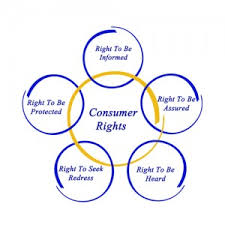TCPA Liability for Businesses Increases with Recent FCC Ruling
Last month, officials at the Federal Communications Commission (FCC) handed down an important ruling pertaining to consumers’ rights and businesses’ liability under the Telephone Consumer Protection Act (TCPA). This FCC ruling has specifically resolved more than 20 requests for the Commission to clarify the statute and has made it easier to sue businesses under TCPA.
Background on the TCPA
Since 1991, the TCPA has regulated certain telemarketing practices, attempting to protect consumers’ rights to privacy by prohibiting robocalls and auto-dialed calls that are made without consent from the called party. In addition to defining when business can and cannot call consumers, the TCPA also governs the types of automated dialer systems that can be used, advertising-related faxes, etc.
However, the TCPA includes some broad definitions of key terms that have, among other things, created some legal grey areas. In fact, some of these ambiguities have been exploited by some businesses as a defense in TCPA litigation.
Highlights of the Recent FCC Ruling regarding the TCPA

A new FCC ruling has strengthened consumer protections – and increased businesses’ liability – under the TCPA, our Los Angeles consumer attorneys explain.
Strengthening the protections for consumers and attempting to clarify the provisions of the TCPA, the FCC’s recent ruling has more clearly defined some of the possibly ambiguous terms of the Act and, in doing so, has restricted the possible defense options for businesses facing TCPA litigation.
Specifically, some of the key aspects of the FCC’s ruling include:
- Specifically defining what an “autodialer” is – The FCC has ruled that an autodialer, is any piece of equipment that can potentially “dial numbers without human intervention” and that can “dial thousands of numbers in a short period of time.” While there are some noted exceptions to this definition, it does provide a broad yet concrete explanation.
- Explaining that text messages are covered by the TCPA – Not only are phone calls covered by the Act, so too are texts, including phone-to-phone text messages and internet-to-phone texts.
- Defining liability for contacting reassigned numbers – When it comes to phone numbers that have been reassigned, the FCC has explained that businesses get one “free pass” for contacting these numbers without facing potential liabilityFollowing this first point of contact, however, businesses can be liable for continuing to contact that number, even if the first call does not yield information about the phone number being reassigned.Here, it is also important to note that the FCC specifically pointed out that it is illegal for businesses to require that consumers notify the businesses of a phone number change. In other words, businesses cannot pass the liability off to consumers.
- Providing consumers with broad means to revoke their consent to being contacted – FCC has clarified that when consumers who have previously agreed to being contacted at a certain number want to revoke this consent, they will have a broad means for doing so. In particular, the FCC noted that this revocation can come “in any manner that clearly expresses a desire not to receive further messages or calls.”
Contact the Los Angeles Consumer Attorneys at Broslavsky & Weinman, LLP
If you believe a business has violated your TCPA rights, contact the Los Angeles consumer attorneys at Broslavsky & Weinman, LLP for experienced help and superior representation.
To find out more about how we can help you, contact us today to set up a free initial consult with one of our lawyers. Call (310) 575-2550 or email us using the contact form on this page.
